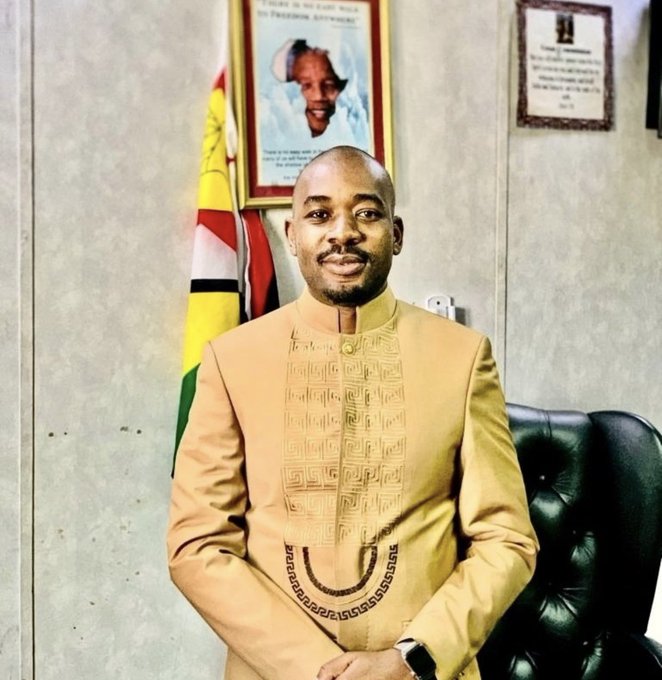WITH the March 26 by-elections as well as the 2023 general elections on the horizon, the Daily News on Sunday News Editor, Mugove Tafirenyika had a chat with professor of world politics at the School of Oriental and African Studies, University of London, Stephen Chan, to discuss political parties’ prospects as well as the performance of President Emmerson Mnangagwa as he seeks his second and final term of office.
Below are excerpts of the interview.
Q. What is your reading of the political and economic situation in Zimbabwe today?
A. The economic situation is dire and will worsen, in that there is no significant debt repayment capacity, and no increase in national productive capacity. Zimbabwe is living on borrowed money and is trying to eke out borrowed time. The political situation suits Zanu PF, given the divisions in the opposition, but Zanu PF is itself internally divided, but it has at least the good sense to enter the by-elections and national elections united.
Q. How has President Emmerson Mnangagwa performed so far as he seeks his second and final term?
A. The president talks a good talk, but has not walked the walk. No significant reforms have emerged from his presidency. There has been no reining in of corruption among the oligarchs and curtailing of power among the securocrats. There has been no generation renewal in his party. Younger people are coming forward, but they do not feature in the highest positions of government. The ‘liberation generation’ seems to have little imagination of a difficult, but changed future which will require changed and more technocratic strategies.
Q. His rival, Nelson Chamisa has finally rebranded his party to Citizens Coalition for Change (CCC). Some say it is a case of new wine in old bottles. What is your take?
A. It was always going to be the same under a new flag. But Chamisa does have to put forward precisely the youthful and technocratic policies so lacking in Zanu PF. Right now, apart from saying he will do better and do it more honestly, he sounds like an old politician rather than the brilliant firebrand with new ideas.
Q. The old problems that affected the party when it was still MDC Alliance seem not to be letting up as evidenced by the fielding of double candidates in at least three wards for the by-elections. What does this say about the outfit? Have they learnt nothing and forgotten nothing?
A. The opposition is going through a completely ridiculous phase. Everyone seems to want a slice of power, even if it is over a small party, which is what at least one of the opposition parties will soon become. No one really seems to have the fate of the nation at heart.
Q. Was the rebranding timely in your opinion given that by-elections are around the corner?
A. The rebranding was very late. It should have been done months ago to allow the building up of name recognition associated with good policies. Chamisa was very stubborn and inflexible until he had no choice. But adaptability and flexibility are precisely the hallmarks of a good president, not stubbornly clinging to old ground.
Q. What is your comment on the use of Chamisa’s face on the party logo?
A. CCC also has the same initials as Chamisa. He is the party’s face and they should indeed use his face and charisma to best advantage. People will see not so much three parties, but will see (Douglas) Mwonzora, (Thokozai) Khupe and Chamisa.
Q. Now that CCC is now a distinct party from the MDC Alliance that Mwonzora has claimed. Does this change anything for Mwonzora as a politician? What does he stand to lose or gain?
A. The by-elections will give some indication of the pecking order among the three opposition parties. Mwonzora will be the best organised of the three and will have the most funding at his disposal. He should do well for now, but that does not mean he will do well in the nationals after Chamisa has had a chance to build the CCC. But, if Chamisa can make some gains in the by-elections, Mwonzora can only feel threatened.
Q. Recently his former ally and deputy, Khupe announced a split of the party. Who in the opposition benefits from that and how does it affect Mwonzora and his political standing?
A. Khupe split away with bitterness and rancour. She will retain some support in the Matabeleland provinces, but much of the MDC on-the-ground apparatus there is already pledging itself to Mwonzora. It will be a case of how strong is her personal support.
Q. Where do you think this leaves Khupe as a politician?
A. If Khupe performs poorly in the by-elections, she is effectively finished as a political force.
Q. Will elections in Zimbabwe, with little or no reforms, change the political and economic fortunes of the country?
A. No change at all. No one is talking about policies. No one has a policy imagination. It’s actually hard to think of another country with so few real ideas being debated at the highest electoral level.
Q. In your view, what should be done to end the country’s myriad crises?
A. You have to flood all the key ministries with youthful technocratic talent. But I see no agronomists, I see no electronic engineers, I see no pharmaceutical scientists being even consulted on a continuing basis by any political figure.
Q. Churches have proposed an elections sabbatical while encouraging talks, talks and talks. Does this work and how, if so?
A. The churches have tried valiantly, but unsuccessfully to build dialogue. Talks would be fine, but what will they talk about? As I said, people seem to be talking about power and no one talks about national policies, the public good, and the serious and hard planning required for a future that has not been borrowed with huge sums owed to others.
